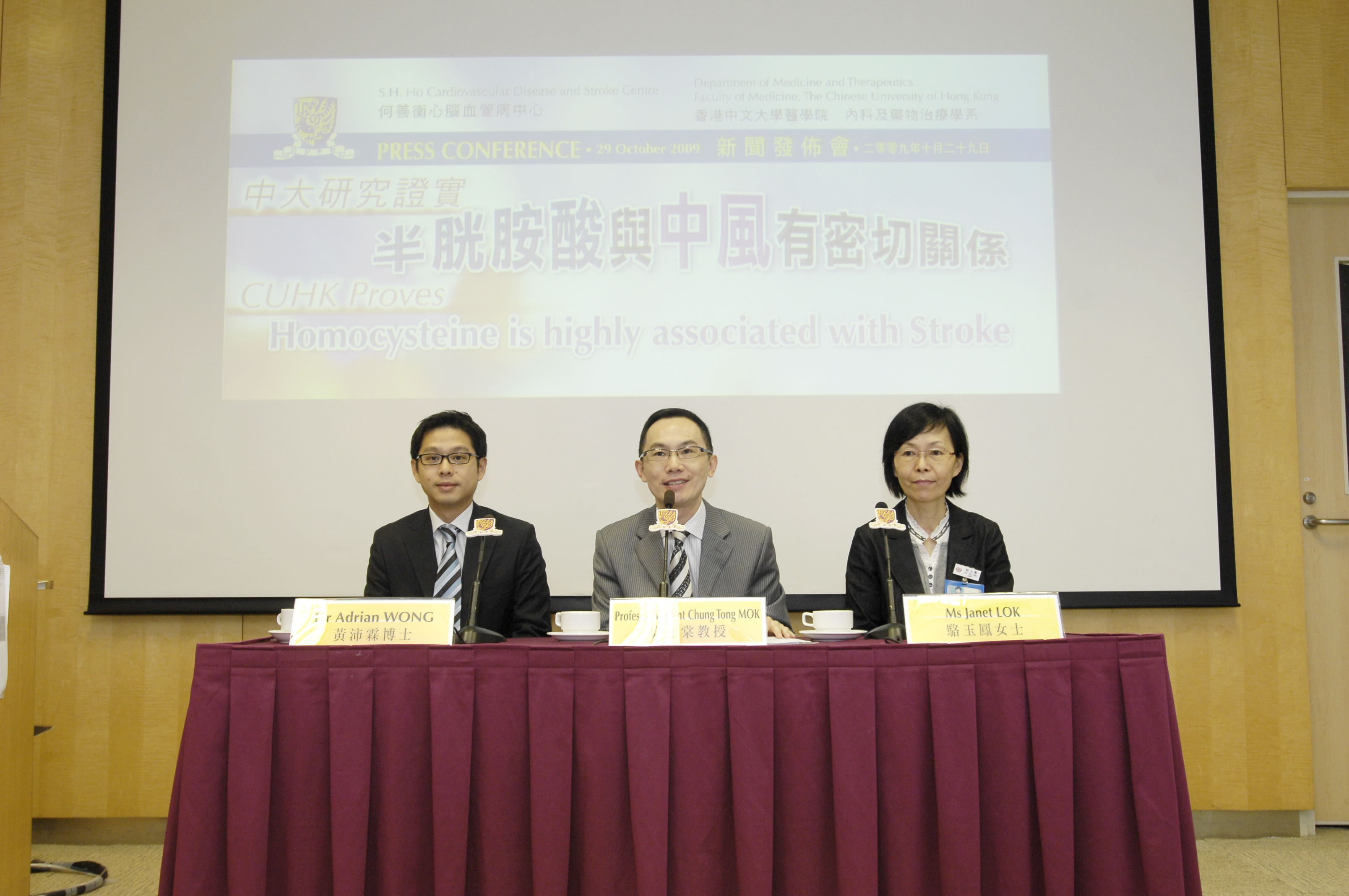CUHK
News Centre
CUHK Proves Homocysteine is Highly Associated with Stroke
The World Stroke Organization proclaims the World Stroke Day 2009 to be on 29 October. The slogan of this year is ‘Stroke – What can I do?’ Stroke is the third most common cause of death worldwide and is the leading cause of disability in adults. It is a complex disease with multiple causes, among which the major risk factors are high blood pressure, diabetes, high cholesterol and smoking. Adequate control of risk factors, which can be achieved by adopting a healthy lifestyle or by medications, is important in stroke prevention.
In recent years, researchers have identified a novel stroke risk factor called homocysteine, which is a derivative of an amino acid absorbed from diet. Since 2002, a research team led by Professor Vincent Mok, Associate Professor of the Division of Neurology of the Department of Medicine and Therapeutics, The Chinese University of Hong Kong (CUHK), has investigated the relationship between homocysteine and stroke. The team followed up 75 stroke patients for 5 years and found that those with high levels of homocysteine had an 8-fold increased risks of having recurrent strokes compared to those with normal levels of homocysteine. It was also proved that homocysteine is associated with the development of white matter lesions, a disease of the small arteries in the brain.
In another study involving 94 patients in 2004, it was also found that white matter lesions increase the risk of cognitive impairment. Furthermore, overseas research results have consistently shown that white matter lesions are associated with dementia, depression, falls and urinary incontinence commonly reported in the elderly.
High homocysteine level can be lowered by taking vitamins B6, B12 and folate supplementation. There are evidences showing that vitamins supplementation can prevent stroke in 1 in every 4 persons. However, a more economical and simple way to achieve a good level of these vitamins is to maintain a healthy lifestyle and diet, which will also exert positive impacts on other stroke risk factors.
A balanced and healthy diet with adequate fruits and vegetables, skim milk, beans and bean products, lean meat and fishes will provide the amount required to prevent deficiency of vitamins B6, B12 and folate. Vegetarians who do not take milk, milk products, eggs or fishes may require vitamin B12 supplementation. Besides, a diet rich in fibre, especially water soluble fibre, low in fat, especially saturated fat, and low in sodium will lower the risk of high cholesterol and hypertension which are the other risk factors of stroke. Apart from taking less fat, a lower intake of sugar and sugary foods also helps to prevent obesity, which is another risk factor of stroke.
Stroke is preventable. Everybody, including you and me, can maintain a healthy lifestyle to prevent stroke.
(From Left) Dr. Adrian Wong, Research Psychologist, Department of Medicine & Therapeutics, CUHK; Professor Vincent Chung Tong Mok, Associate Professor, Department of Medicine & Therapeutics, Faculty of Medicine, CUHK; and Ms. Janet Lok, Department Manager (Dietetics), Prince of Wales Hospital, Shatin



